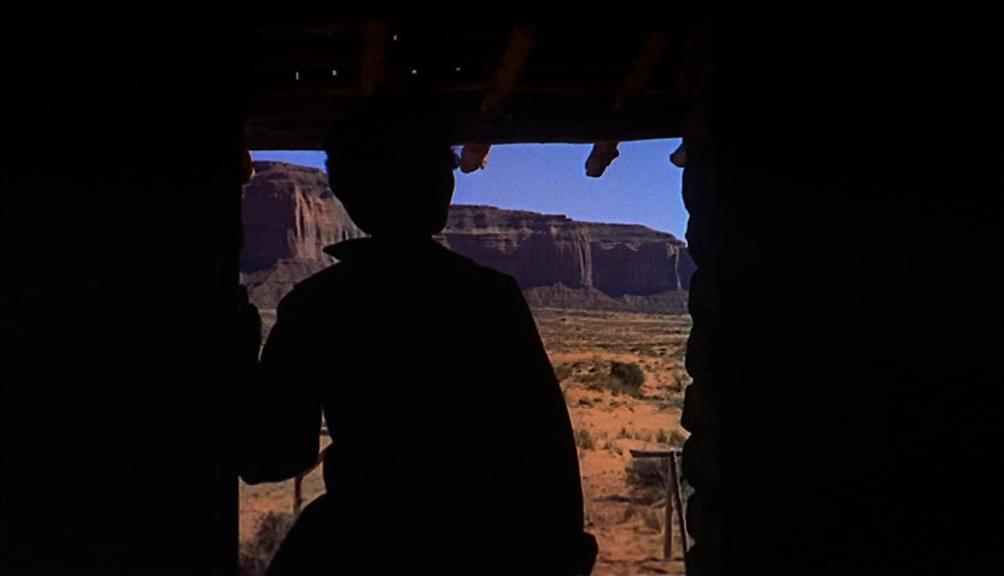
John Ford’s 1956 Western, The Searchers, ends with the camera framing a doorway, looking out into the gloriously filmed desert. As his remaining friends and family cross over the threshold into the welcoming house, John Wayne’s Ethan Edwards stays outside, watching them. Then he pauses a moment, turns, and walks off into the red dust. There’s a lean to his shoulders, a loll to his gait that no dialogue could quite capture. Ford’s film lingers on his actor as the door slowly shuts, and the film ends.
Ethan Edwards, ex-confederate sergeant, fitting the description of several wanted men, returns home to the Texas frontier in 1868. It’s his brother Aaron’s place, and it proves to be an awkward reunion. Tellingly, Ethan glares at the sun-darkened skin of Martin Pawley (Jeffrey Hunter), a now-grown foundling that he’d rescued from an Indian massacre years before. “A fellow could mistake you for a half-breed,” growls Ethan. And with that glare, Wayne exposes his character’s darkened heart, unsettling his family.
Soon after, as Ethan and Martin are on a search party looking for lost cattle, the Edwards’ homestead is attacked by a Comanche war party. They return too late. The family has been murdered save for the youngest daughter, Debbie. Ethan and Martin set off to rescue her, and the days drag on to months and years. As they inch ever so closer to their goal, critters that won’t give up, Martin begins to despair. He sees in Ethan not just persistence, but a persistent hatred. He fears what will happen if they do find Debbie. He resolves to stand before her, vowing to prevent whatever act Ethan intends to commit in order to wipe out the stain of a half-breed life.
Ford’s film is, of course, about the search for Debbie. But it’s far more than that—jarring to modern ears, its racial politics are belied by the sensitive portrayal both of the Native American actors themselves and the vitriol embodied by Wayne’s Edwards. Ethan cares, and swears, that after years of captivity, Debbie is no longer “white.” But when the climactic moment comes, and Debbie is found, Edwards must choose between a bitter hate and a searching love. We see that while Debbie has been the subject of the search, she has not been its only object.
—Edward Allie
- Directed by: John Ford
- Produced by: Merian C. Cooper Patrick Ford
- Written by: Frank S. Nugent Alan Le May
- Music by: Max Steiner
- Cinematography by: Winton C. Hoch
- Editing by: Jack Murray
- Release Date: 1956
- Running Time: 119
- Language: English
Arts & Faith Lists:
2011 Top 100 — #18
2012 Top 25 Road Films — #16